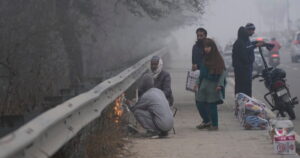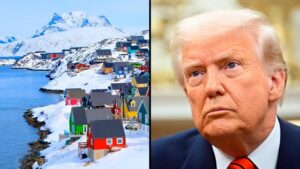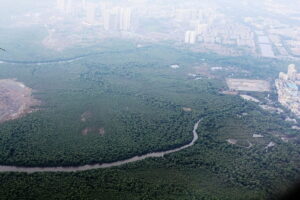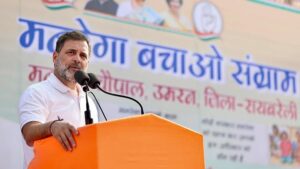B’desh: Battle Between Democracy & Autocracy
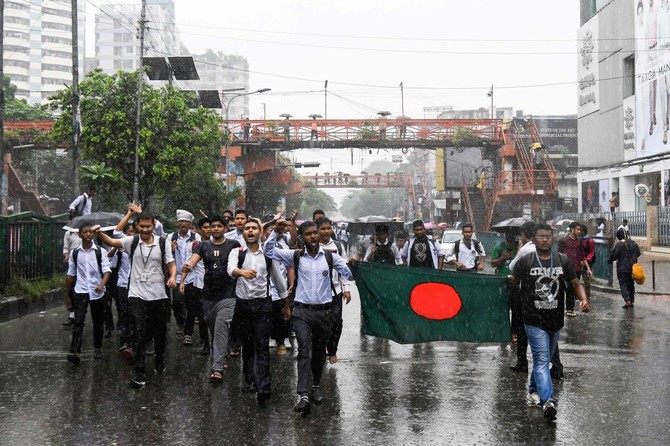
The brutal crackdown on student protesters revealed the totalitarian aims of the prime minister and the resilience of belief in democratic freedoms
The crisis in Bangladesh can be seen as a battle for the soul of Bangladesh’s political future.
On one side there is 76-year-old Prime Minister Sheikh Hasina, who has not held genuinely free, fair and participatory elections for the past 15 years. She appears to want to drive Bangladesh from an autocracy to a totalitarian state.
In Hasina’s totalitarian vision of Bangladesh, she and her government will face no accountability, and if anyone protests, they will be met with a violent crackdown, including death, torture, enforced disappearance and imprisonment.
Any violence against protesters will be justified on the grounds they are “anti-state”, “anti-independence” and “conspirators” who want to derail the dream of Hasina’s late father and the country’s founding leader, Sheikh Mujibur Rahman, of a ‘golden Bengal’.
On the other side of the battle, there are hundreds and thousands of Bangladeshi students and political opponents who want accountable government and greater participation in the decision-making process. They want to exercise their democratic aspirations by demanding fairer access to government jobs — specifically through reform of the quota system for the Bangladeshi public service.
Over the past 15 years, Bangladeshis from all walks of lives have shown their resilience in the face of autocratic governance and have adopted innovative techniques to challenge it.
The current student pushback against Hasina’s totalitarian ambitions is an example of this ‘democratic bricolage’ — the creative ways in which the ideals of responsive government and popular participation are upheld and autocracy is contested.
In a previous round of protests in 2018, students demanded the abolishment of the 30 percent public service quota reserved for independence fighters and their descendants.
They argued that the veterans’ quota in the years immediately after independence in 1971 was justified, but after 50 years of independence it had become redundant and Hasina’s government was using the quota only to recruit party cadres. The 2018 protest led to the abolishment of the quota system.
However, it was reinstated this year, angering many students, who began to stage peaceful protests at universities around the country.
By protesting government decisions and holding rallies, the students showed they value democratic freedoms and their right to protest.
Hasina called the protesting students “razakars” — a derogatory term for those who sided with Pakistanis in carrying out atrocity crimes against Bengalis in the 1971 war for independence. The accusation angered protesters, who chanted slogans calling Hasina a dictator.
To quell the protests, Hasina’s government first deployed the Bangladesh Chhatra League, the student wing of Hasina’s Awami League party. Their indiscriminate, violent attacks involved sticks, guns and other weapons, and they made no effort to spare female students. In many instances, police were seen to support the Chhatra League and also to use physical force inside university campuses.
The students turned from peaceful protest to fighting back with violence. They allegedly set fire to the state television building in Dhaka, seen as the mouthpiece of the government.
Hasina deployed all the security forces — police, military, border guard, detective branch, and intelligence agencies — to squash the protests.
An internet blackout and a strict curfew were put in place, with a ‘shoot-on-sight’ order for offenders or unruly crowds.
The result is horrific. According to conservative estimates, about 200 people were killed, mostly students. Some victims were children. Students and some media sources reportedly put the real figure much higher. Media reports have claimed that helicopters were used to shoot at protesters, and UN officials have conveyed concerns that UN-marked vehicles were used in suppressing protests. The country’s own armed forces and border guards, who are supposed to defend the country’s border, were seen shooting at their own citizens.
Meanwhile, the government reduced the quota to 7 percent — 5 percent for descendants of veterans and 2 percent for members of ethnic minorities and people with disability or identifying as transgender.
That move can’t undo the brutality of the crackdown, which is unheard of in Bangladeshi history.
With the internet back up, in a limited capacity, the videos and photos that have emerged are harrowing. Unarmed civilians are seen being shot and left on the streets. Many lost limbs and even eyes.
Some of the student leaders of the protests were forcefully disappeared, tortured and coerced into compromising with the government.
However, while Hasina is seemingly re-establishing control over the streets, she will not be winning many hearts and minds.
The student leaders who were forcefully disappeared, tortured and later released, are not giving up. With broken voices, teary eyes and in obvious pain, they held a press conference and demanded Hasina accept responsibility for the mass killings of students and that she publicly apologise.
This is perhaps the greatest challenge to Hasina, because for so long she has avoided accountability.
Like any totalitarian leader, she considers herself the state, answerable to nobody.
In asking her to accept blame for the violence directed against her own citizens, the tortured and beaten students are demonstrating their democratic resilience.
They are showing that the battle to bring Bangladesh back to democracy is far from over.
(Originally published under Creative Commons by 360info™)

